We know how difficult it is to start up your own indie business. There are so many things to consider and it can sometimes feel like you're jumping in the deep end, but we're on a mission to be your armbands (supportive, brightly coloured, huggable). We're working with the incredibly talented Helen from The Creative Business Network and Aime from Studio Cotton. This two have a whole load of experience in the indie biz sector, running events like Creatival and making stellar websites for small businesses.
We asked you for your questions over on our Instagram and received so many fab queries that we're going to make this a monthly feature. Think of it as your time to pick their creative brains and get the support you need.
(P.S. If you submitted a question but can't find it in this post, we've saved them all for the next series where Helen and Aime will answer them!)
1. How did you get started?
Asked by Steph
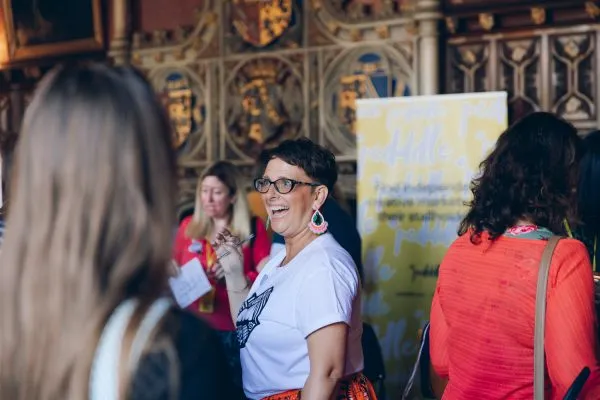
Helen:
I actually started my first business in early 2008, although at the time it was just a very natural organic growth of a small creative business. I made personalised cushions which I sold at fairs, and ended up online on my own website, NOTHS, Etsy and Folksy, and learnt all about social media marketing while doing so.
I was featured in a number of magazines, including Country Living's Christmas edition, which was the pinnacle! But I started to fall out of love with making, and fall in love with trying to build a creative community. I ended up working in a digital agency as their social media and content specialist alongside founding Creative Women Together – a series of monthly networking events for women.
That then all developed into The Creative Business Network around three and a half years ago. And that was the short version! I don’t think it’s unusual to start in one direction and end up in a completely different one. Our businesses develop as we grow, and I’m constantly evolving, which I think adds excitement to what I do.
Aime:
I took almost the opposite route to Helen and ended in a very similar place. After university, I dabbled in retail management before moving into marketing agency life. I worked my way through the ranks with every type of client going; global corporations, national brands, small businesses and start-ups.
I was never a good fit with the industry, the 'work hard, play hard' mentality goes against my natural 'work mildly, nap wildly' lifestyle. Eventually, I’d had about as much as I could take, and I jumped ship, swearing off agency life for good. Thing is, I still had rent to pay. I started consulting on branding, website and marketing projects for indie businesses to tide me over, and after not too long, I realised that it was actually quite fun to do the work – just on my own terms. Three and a half years ago I formed Studio Cotton, a lovely little marketing agency for small creative businesses.
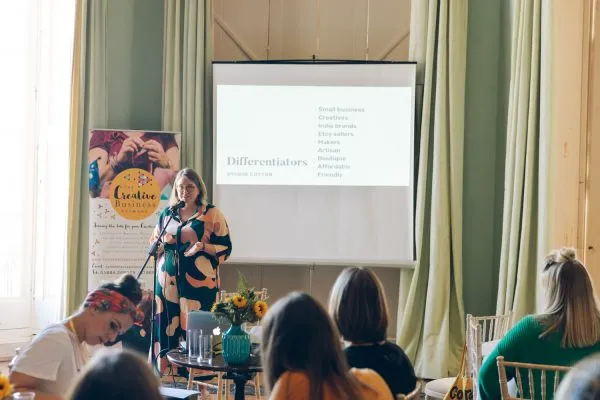
2. Should you keep a job while starting your indie biz?
Asked by @hannah_torresdesigns
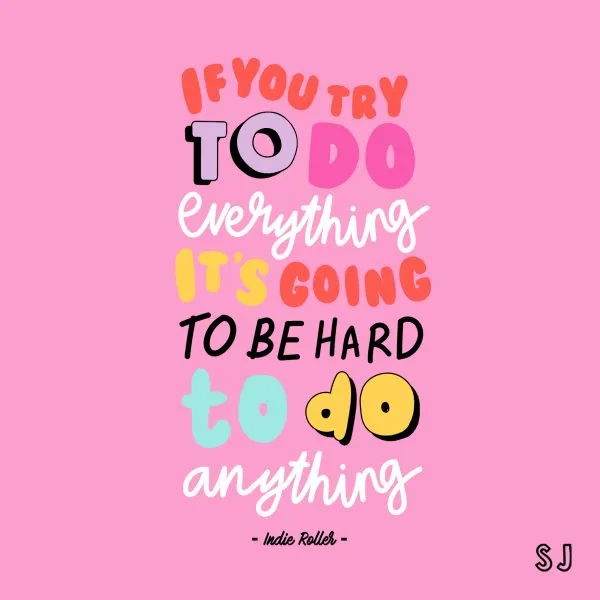
Helen:
There are so many questions to ask before giving an opinion on that, although I will say there is no ‘should’ about anything. Everyone’s circumstances are different. Do you have savings? How much do you need to earn from your indie biz? Do you have a family? Do you have a partner that can financially support you both?
Each individual situation is so different, just as each business is completely different, so it really depends on your own personal circumstances. I will say however that there is a huge amount of work to do in the background before launching your business, so maybe concentrate on that and from your research, find out how financially viable it is.
Aime:
I totally agree with Helen, especially about the word ‘should’. Personally, I'm one to err on the side of caution and focus on minimising risks, after all, we can’t pay our rent with our products or our potential, as much as we’d like to!
Luckily it’s easier than ever to test the waters when starting a small business. If you have physical products, an Etsy shop is a great place to start. Take advantage of their marketing and analytical support, as well as your local Etsy team. These activities can fit around the 9-to-5, and once you know you’re on to a good thing, it might be the right time to wind down the day job and wind up small biz life.
3. I’d love to start my own business, but how do you make that jump with a full-time job in a different field?
Asked by @allynash
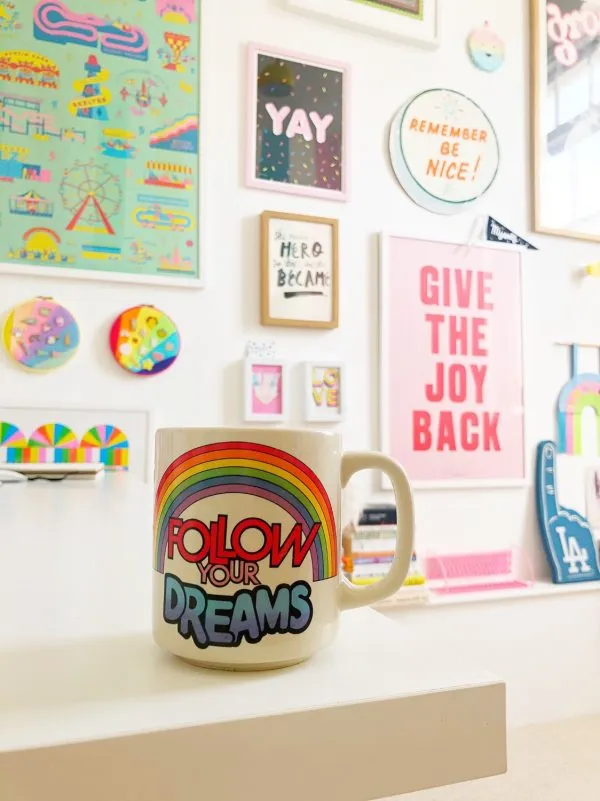
Helen:
It’s completely possible, but I would say research is key. Work on your own business in your own time first – product development, market research, branding, etc. – and once you're in a position to cut down your hours then you’ll have done a lot of the hard work!
Aime:
We had a similar question to this for the panel at Creatival, a creative conference in the South West, and I think Josephine Brooks had the best answer – it doesn’t need to be a jump. A slower transition from employment to self-employment is often the best fit.
I’d recommend having a conversation with your employers to see if a future transition to part-time hours is feasible, as that'll allow you to plan for business growth.
4. Did you go through a lot of market research before starting out? I'm worried it’s misleading or not a true representation. Love you both!
Asked by @ashleighfin
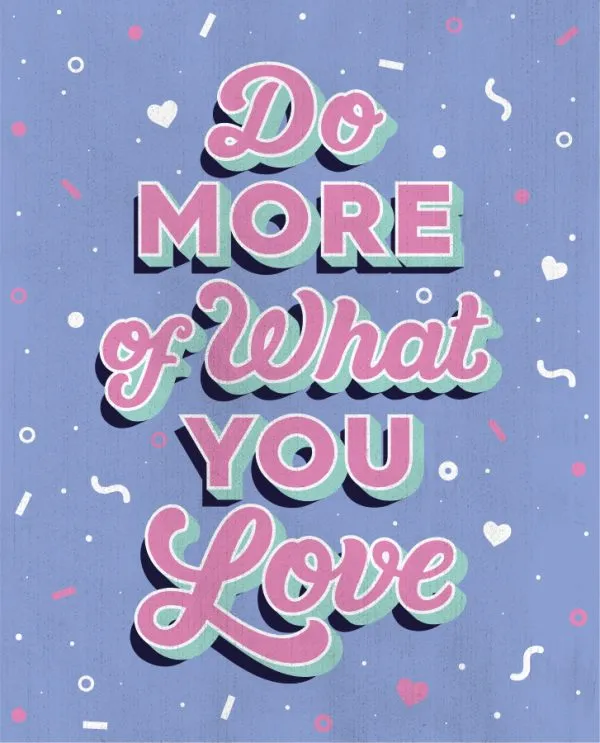
Helen:
It’s really important to know your audience, and figure out your niche before you start. Make sure there's a real need for what you're offering, and figure out what's unique about you. I knew there was a need for a creative community in my area, and that the small businesses around me needed support because I'd been one of those small businesses.
I asked a lot of questions, and I ran the networking while I was working, so I could really build up the audience and find out exactly what they needed. I had a very supportive local community before I launched, so it was easier for me to sell my services.
Aime:
I don’t think I consciously completed a market research project for Studio Cotton, but I was constantly reviewing the competition, my statistics, and feedback from my clients and community.
No single piece of market research feedback will give you a yes/no answer to the big questions, which is why it’s important to cover many bases. Make sure to take any subjective feedback with a pinch of salt and listen to the cold hard stats. Someone might say they love reading your marketing emails, but if they’re not making you money, it’s probably time to switch things up.
5. How do you stay positive when starting your own business?
Asked by @buntingbyjen
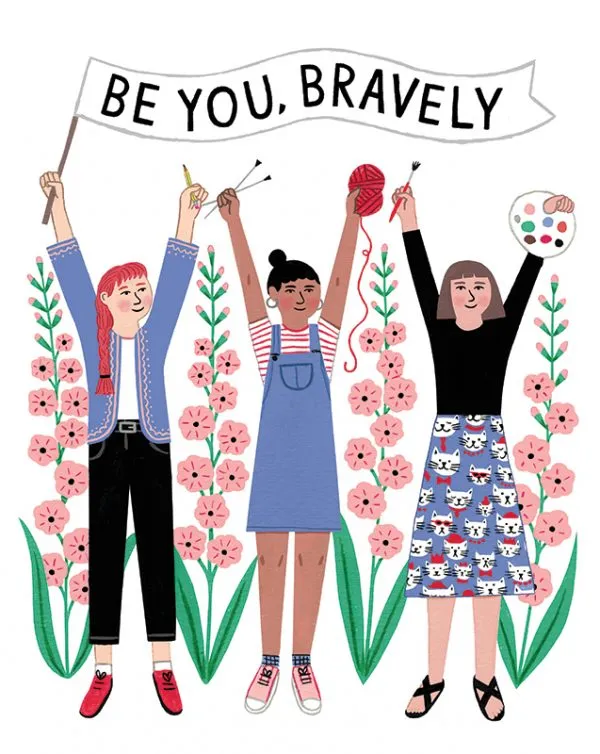
Helen:
In theory, the excitement and passion you have for this incredible idea/product/service will keep you going, and keep you motivated and positive! In reality, though, there are a lot of challenges you come across, and I think the key is finding other people who totally get what you are going through.
Connect with people you can turn to when things are tricky, but also those who can celebrate with you when you get a good result. Community is key when you’re running a business, and they'll be the ones who help keep you positive.
Aime:
To be totally honest, I didn’t. I'm three and a half years in now and only just starting to feel really proud of what I'm achieving, and feeling that I'm successful. It took me nearly two years of running a business to find my community, and they were the real game-changer.
When I met an amazing group of women who help me sense check my ideas, recognise my achievements, pick me up when I’m down and keep me in line when my ego gets the better of me, that’s when my business and I really started to flourish.
6. How do you stay motivated at the beginning when you have very few sales?
Asked by @ladymelodyshears
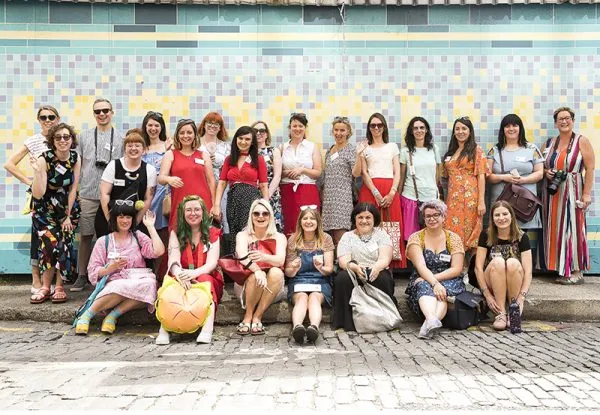
Helen:
It's very likely that sales will be slow at the beginning of your business, but it's making sure you're optimising every opportunity you have for sales. Understanding all aspects of the business from a selling point of view – knowing your audience, having a clear brand message, and wherever you’re selling, making sure your search engine optimisation (SEO) is on point, will help you to stay motivated because you’ll know you're doing everything right.
The hardest thing when you don’t have any sales is questioning why those sales aren’t happening. And most of the time, the sales aren’t happening because you haven’t done all of the preliminary business steps. So being proactive and making sure you’ve got every box ticked, having a clear marketing plan and sticking to it, regardless of how you are feeling, is vital. Every day it gets a tiny bit easier and all of a sudden you’ll be a year down the line and looking back at how much you’ve learnt.
Aime:
As Helen said, at the start of your business, you’re most likely to have your lowest level of sales. It makes sense – your sales funnel is empty, you don’t have brand advocates in the form of existing customers, and you probably haven’t nailed your marketing and sales strategy. Making money is just one aspect of running a business (even if it is probably the biggest one) and it’s the hardest to achieve in the early days, weeks and months.
It’s really tough to weather this storm on your own emotions and motivation. So, the first thing I recommend is focusing on the wins, no matter how seemingly small. Celebrate every mailing list sign up, every positive thoughtful comment on Instagram, and every time you pushed yourself out of your comfort zone, because you’re doing a great job bbz.
7. How do you promote yourself and get your brand out there?
Asked by @whatlauradrew

Helen:
Everyone’s capacity is different. Depending on your own personal circumstances, and where you are in your business depends on how much you can promote yourself. It also depends on what you're selling and to whom.
Where are your audience? Are they on a specific social media platform, or are you better promoting yourself in the press? Does your brand offer products or services? In an ideal world, you’ll have your own website, send regular emails, post on social media (the channel/s depending on your audience) regularly (regularly means different things for different people) and engage, engage, engage.
And remember, it’s not just about selling, it’s about being proactive with other people. Commenting on other people’s social posts, sharing links, researching industry experts, asking questions – all of those things get you seen. It’s about relationship building and understanding that good relationships don’t just happen overnight. Learn to nurture and invest in people that matter.
Aime:
I can’t add much more than what Helen has said, because it’s exactly what I say too. One thing that worked well for me and my business was to just attend as many in-real-life events as possible.
I still avoid anything described as a 'networking opportunity', but workshops, craft classes, meet-ups, business parties, drop-in sessions, co-working days, independent markets, trade shows, exhibitions and conferences are all wonderful opportunities to meet new people – and you never know which new person is going to change your life.
8. How to stand out in an oversaturated market?
Asked by @vintage_cyanide_designs

Helen:
Understand what's totally unique about you, and shout about it. It can be something really really small, but build on it and make that your own.
Whatever it is: the way you ball your wool, a technique you always use, or a certain natural hand-dyed yarn, the way you sign off your emails, the way you style your images, or push the boundaries with your designs. Find something that is different and makes you stand out, and others will notice.
Aime:
When it comes to marketing, look at what your competition is doing, and do it 10% better. Look at their websites and find things you reckon you could do better, and do them. Internally critique their social media presences, look for their missed opportunities, then fill those gaps with your own business. If you think your competition has boring packaging, make yours pzazzy to the max.
9. Do I have to put my own money into starting up a small business?
Asked by @a_m_nolan

Helen:
It will cost a certain amount to start up a business. It doesn’t need to be a lot at the very beginning, but it is a good idea to have a budget when you start. Depending on what your business is, you’ll need somewhere to sell. If it’s offline you’ll need to pay for craft fairs or markets. If it’s online, you’ll need to pay for a website or fees for Etsy/Not on the High Street etc. You’ll need to build up stock and you’ll need some great photography. It may be you can take the pictures yourself but you might need a new camera.
If you’ve got savings, work out where to prioritise your budget. If you don’t have savings but you’ve got a great business idea, there is financial support out there. There are some government grants available depending on your business and where you live. You can find out more here: www.gov.uk/business-finance-support
The government also give start-up loans of up to £25,000 if you’ve been trading for less than 12 months or are yet to launch, and the scheme does provide mentoring and support to make sure your business is viable. You can find out more here: www.startuploans.co.uk
You can also approach your bank for a business start-up loan, or go down the crowdfunding route if viable.
Aime:
When starting a small business, there are three main resources to consider: money, time, and creativity. It is possible to get started on a thread-bare financial budget, but it will take you more time, and leaves less room for creativity. Starting a business with money from your own savings or one of the sources Helen has suggested can help you achieve more in less time, preventing, or at least decreasing, the chance of burnout.
We hope you've found Helen and Aime's advice useful and are ready to start or move forward, with your indie biz journey! For more business tips check out:
- YOU are your greatest marketing asset by Indie Roller
- How to up your creativity by making a mood board
- Maker business tips: How to crowdfund your business

